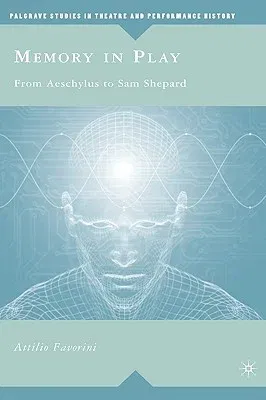A Favorini
(Author)Memory in Play: From Aeschylus to Sam Shepard (2008)Hardcover - 2008, 12 January 2009

Qty
1
Turbo
Ships in 2 - 3 days
In Stock
Free Delivery
Cash on Delivery
15 Days
Free Returns
Secure Checkout

Part of Series
Palgrave Studies in Theatre and Performance History
Print Length
334 pages
Language
English
Publisher
Palgrave MacMillan
Date Published
12 Jan 2009
ISBN-10
0230604641
ISBN-13
9780230604643
Description
Product Details
Author:
Book Edition:
2008
Book Format:
Hardcover
Country of Origin:
US
Date Published:
12 January 2009
Dimensions:
23.62 x
15.49 x
2.29 cm
ISBN-10:
0230604641
ISBN-13:
9780230604643
Language:
English
Location:
New York
Pages:
334
Publisher:
Weight:
589.67 gm